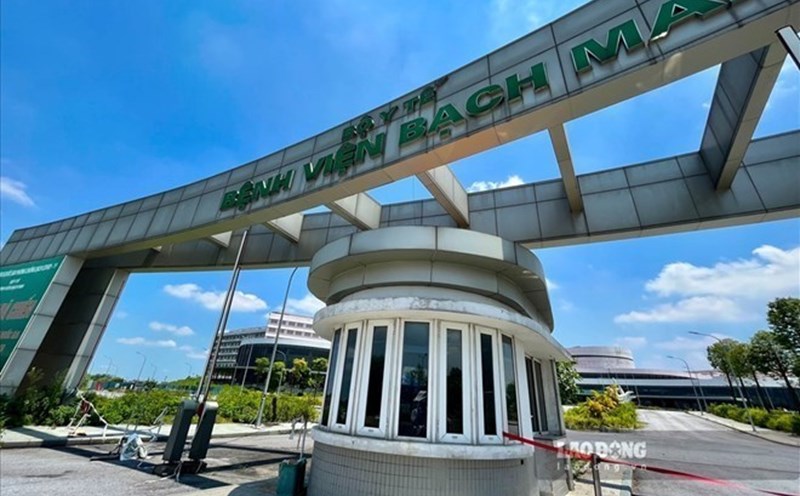Do not let Vietnam become a technology landfill
The Ministry of Construction is seeking opinions on the Draft National Technical Regulation on the average fuel consumption (CAFC) for cars in Vietnam. Accordingly, the average consumption according to the draft is 4.83 liters/100km by 2030.
The draft is creating mixed opinions. Some opinions say that the fuel consumption of 4.83 liters/100km is strict, causing difficulties for automakers.
The Vietnam Automobile Manufacturers Association (VAMA) attracted attention when it said that if the average fuel consumption of 4.83 liters/100km is applied, 96% of traditional gasoline-powered cars will have to stop being sold.
However, according to some analysts, the above consumption level is still high compared to the world.
Statistics show that Vietnam's CAFC target of 4.83 liters/100km by 2030 is still 2.6 times higher than the EU, 1.9 times higher than China, Australia, and New Zealand. Even compared to Japan and Korea, countries with many large brands of gasoline and oil vehicles, Vietnam's consumption is still much higher, about 1.4 times higher than Japan and 1.8 times higher than Korea.
The above figures show a rather contrasting reality. Gasoline and oil vehicles in Vietnam are mostly imported or only assembled for foreign enterprises.
Moreover, most of the major automobile manufacturers operating in Vietnam are multinational corporations. These foreign car models are not only sold in Vietnam but also in demanding markets with much stricter standards such as Europe, Australia, Japan, etc.
Therefore, applying a progressive standard in Vietnam requires companies to bring the best, cleanest technologies to Vietnamese consumers, instead of only providing older versions that can turn Vietnam into a technology landfill.
It needs to be done quickly, done early
Regarding the timing of application, experts say that the proposal of the Ministry of Construction for 2030 is appropriate and even needs to be applied as soon as possible in the context of increasingly severe pollution, especially the Net Zero goal ahead (2050).
This proposal has become even more urgent as recently, in the report " greener growth: The path to a sustainable future", the World Bank warned that if there are no major changes in technology, Vietnam's current policies are not enough to achieve the Net Zero target by 2050.
MSc. Dinh Trong Khang, Deputy Director of the Institute of Environmental Medicine, Institute of Transport Science and Technology, also emphasized that the need to reduce emissions is extremely urgent.
The US and European countries have very strict emission requirements and heavily punish violating businesses. They determined that they cannot just give in but still achieve commitments on the goal of reducing net emissions by 0, which is extremely challenging. If we do not act decisively, it cannot be done, said Th.S Dinh Trong Khang, citing further evidence that India recently announced that the average fuel consumption of a 1,500 kg fleet must reach 4.38 liters/100 km by 2027, 3 years earlier than Vietnam.
Agreeing, many experts also emphasized that requiring manufacturers to meet green transformation standards is necessary and must be done quickly and early.
In fact, the new standards according to the draft are completely feasible because the roadmap is flexible. In addition to the quite long preparation time (5 years), the draft also provides a roadmap to gradually increase each year. This method allows businesses time to adjust production plans and invest in technology.
More importantly, it is necessary to soon apply the carbon credit mechanism as many countries have done to create flexibility and cooperation for manufacturers.
carmakers with technological strengths such as electric vehicles (EVs) may sell their surplus credits to other carmakers that are also focusing on internal combustion engines (ICE). This creates a market that encourages the development of environmentally friendly technology, while not eliminating product diversity.
Above all, from the perspective of the people, the new standard brings benefits in all aspects when Vietnamese users can save costs (fuel-efficient cars mean lower costs), access clean and effective technology. Moreover, reducing fuel consumption will contribute to improving air quality, reducing respiratory diseases, thereby ensuring the health of millions of people.
Therefore, according to experts, with a comprehensively beneficial and feasible solution, it is necessary to implement it early, it cannot be delayed by 1 year, let alone postpone it for 4 or 5 years. If delayed, Vietnam will lose the opportunity to upgrade transportation standards and protect public health... and leave a huge environmental burden and social costs for future generations.










